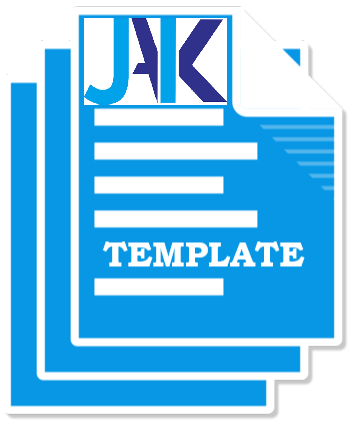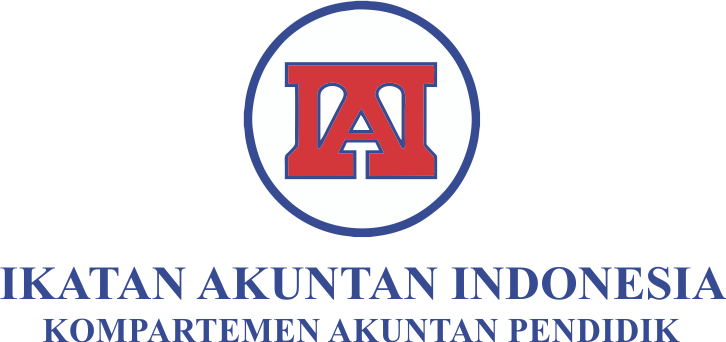Niat dan Perilaku Whistleblowing Auditor Pemerintah
Abstract
ABSTRACT
This study aims to examine the Theory of Planned Behavior (TPB) construct in the whistleblowing behavior of government auditors. Respondents in this study were BPK auditors representing South Sulawesi, totaling 86 respondents. The tool used in data management uses Partial Least Square (PLS). The results showed that whistleblowing attitudes, subjective norms, and perceived behavioral control had a significant positive effect on whistleblowing intentions, the same was found in the relationship between perceived behavioral control and whistleblowing behavior. In addition, significant positive results were found in the relationship between intention and whistleblowing behavior and the relationship between subjective norms and whistleblowing attitudes. This research contributes to the BPK as a government financial auditing institution to build a work environment that can encourage their auditors to have intention and behavior as a whistleblowing. The limitation of this study lies in the scope of the population, only BPK auditors representing South Sulawesi and only conducting tests on the Theory of Planned Behavior (TPB) construct in assessing the intentions and behavior of BPK auditor whistleblowing. We hope that further research can develop by comparing the whistleblowing intentions and behavior of government external auditors (BPK) and internal auditors (BPKP and Inspectorate).
Keywords
Full Text:
PDF (Bahasa Indonesia)References
Ajzen, I. (1988). Attitudes, Personality, and Behavior. Dorsey Press, Chicago.
Ajzen, I. (1991). The theory of planned behavior. Organizational Behavior and Human Decision Processes, 50(2), 179–211. https://doi.org/10.1016/0749-5978(91)90020-T
Ajzen, I. (2002). Perceived behavioral control, self-efficacy, locus of control, and the theory of planned behavior. Journal of Applied Social Psychology, 32(4), 665–683. https://doi.org/10.1111/j.1559-1816.2002.tb00236.x
Ajzen, I., Lohmann, S., & Albarracin, D. (2018). The Influence of Attitudes on Behavior. University of Illinois at Urbana-Champaign Key, May.
Alleyne, P., Roszaini Haniffa, & Mohammad Hudaib. (2019). Does group cohesion moderate auditors’ whistleblowing intentions? Journal of International Accounting, Auditing and Taxation, 34, 69–90. https://doi.org/10.1016/j.intaccaudtax.2019.02.004
Bock, Gee-Woo, Zmud, R. W., Kim, Young-Gul, & Lee, Jae-Nam. (2005). Behavioral Intention Formation in Knowledge Sharing : Examining the Roles of Motivators, Social-psychological Forces, and Organizational Climate. MIS Quarterly, 29(01), 87–111. https://doi.org/10.2307/25148669
Carpenter, T. D., & Reimers, J. L. (2005). Unethical and fraudulent financial reporting: Applying the theory of planned behavior. Journal of Business Ethics, 60(2), 115–129. https://doi.org/10.1007/s10551-004-7370-9
Chiu, R., & Erdener, C. (2003). The ethics of peer reporting in Chinese societies : evidence from Hong Kong and Shanghai The ethics of peer reporting in Chinese societies : evidence from Hong Kong and Shanghai. Int. J. of Human Resource Management, 14(Maret 2003), 335–353. https://doi.org/10.1080/0958519021000029153
Chiu, R. K. (2003). Ethical Judgment and Whistleblowing Intention: Examining the Moderating Role of Locus of Control. Journal of Business Ethics, 43(1–2), 65–74. https://doi.org/10.1023/A:1022911215204
Dalan, S. N. A. B., Singh, J. S. K., Selvanathan, M., & Singh, J. K. H. J. (2019). Whistleblowing behaviour at work: a study among non-executive public servants in Malaysia. Amazonia Investiga, 8(18), 337–350.
Hartwick, J., & Barki, H. (1994). Explaining the Role of User Participation in Information System Use. Management Science, September 2015.
Hassan, L. M., Shaw, D., & Shiu, E. (2016). Who Says There is an Intention–Behaviour Gap? Assessing the Empirical Evidence of an Intention–Behaviour Gap in Ethical Consumption. Journal of Business Ethics, 136(2), 219–236. https://doi.org/10.1007/s10551-014-2440-0
Iskandar, A., & Saragih, R. (2018). Pengaruh Sikap Ke Arah Perilaku, Norma Subjektif, Dan Persepsi Kontrol Atas Perilaku Terhadap Niat Dan Perilaku Whistleblowing Cpns. Jurnal Tata Kelola Dan Akuntabilitas Keuangan Negara, 63–84. https://doi.org/10.28986/jtaken.v4i1.142
Jerry B. Hays. (2013). An investigation of the motivation of management accountants to report fraudulent accounting activity: Applying the theory of planned behavior. Nova Southeastern University ProQuest Dissertations Publishing.
Jogiyanto. (2007). Sistem Informasi Keperilakuan (edisi revisi). Penerbit Andi.
Latan, H., Ringle, C. M., & Jabbour, C. J. C. (2018). Whistleblowing intentions among public accountants in indonesia: Testing for the moderation effects. Journal of Business Ethics, 152(2), 573–588. https://doi.org/10.1007/s10551-016-3318-0
Lee, C. (2008). Modifying an American Consumer Behavior Model for Consumers in Confucian Culture : Journal of International Consumer Marketing, April 2015, 37–41. https://doi.org/10.1300/J046v03n01
Lewis, W., Agarwal, R., & Sambamurthy, V. (2003). Sources of Influence on Beliefs about Information Technology Use: An Empirical Study of Knowledge Workers. MIS Quarterly: Management Information Systems, 27(4), 657–678.
May-Amy, Y. C., Han-Rashwin, L. Y., & Carter, S. (2020). Antecedents of company secretaries’ behaviour and their relationship and effect on intended whistleblowing. Corporate Governance (Bingley), 20(5), 837–861. https://doi.org/10.1108/CG-10-2019-0308
Mesmer-Magnus, J. R., & Viswesvaran, C. (2005). Whistleblowing in organizations: An examination of correlates of whistleblowing intentions, actions, and retaliation. Journal of Business Ethics, 62(3), 277–297. https://doi.org/10.1007/s10551-005-0849-1
Namazi, M., & Ebrahimi, F. (2017). A study of accountants’ whistle-blowing intention: Evidence from Iran. International Journal of Business Governance and Ethics, 12(4), 349–373. https://doi.org/10.1504/IJBGE.2017.090213
Nawawi, A., & Salin, A. S. A. P. (2018). Whistle blowing intentions – evidence from Malaysian PLC. International Journal of Law and Management, 60(5), 1111–1125. https://doi.org/10.1108/IJLMA-04-2017-0096
Nayır, D. Z., Rehg, M. T., & Asa, Y. (2016). Influence of Ethical Position on Whistleblowing Behaviour: Do Preferred Channels in Private and Public Sectors Differ? Journal of Business Ethics, 149(1), 147–167. https://doi.org/10.1007/s10551-016-3035-8
Near, J. P., & Miceli, M. P. (1985). Organizational dissidence: The case of whistle-blowing. Journal of Business Ethics, 153–172. https://doi.org/10.1007/978-94-007-4126-3_8
Park, H., & Blenkinsopp, J. (2009). Whistleblowing as planned behavior - A survey of south korean police officers. Journal of Business Ethics, 85(4), 545–556. https://doi.org/10.1007/s10551-008-9788-y
Rhodes, R. E., Blanchard, C. M., & Matheson, D. H. (2006). A multicomponent model of the theory of planned behaviour. British Journal of Health Psychology, 11(1), 119–137. https://doi.org/10.1348/135910705X52633
Rustiarini, N. W., & Sunarsih, N. M. (2017). Factors influencing the whistleblowing behaviour: A perspective from the theory of planned behaviour. Asian Journal of Business and Accounting, 10(2), 187–214.
Sarikhani, M., & Ebrahimi, F. (2021). Whistleblowing by accountants: an integration of the fraud pentagon and the extended theory of planned behavior. Meditari Accountancy Research. https://doi.org/10.1108/MEDAR-10-2020-1047
Tarjo, Prasetyo, Suwito, A., Aprillia, I. D., & Ramadan, G. R. (2019). Theory of planned behavior and whistleblowing intention. Jurnal Keuangan Dan Perbankan, 23(1), 43–57. https://doi.org/10.26905/jkdp.v23i1.2714
Triantoro, H. D., Utami, I., & Joseph, C. (2020). Whistleblowing system, Machiavellian personality, fraud intention: An experimental study. Journal of Financial Crime, 27(1), 202–216. https://doi.org/10.1108/JFC-01-2019-0003
Trongmateerut, P., & Sweeney, J. T. (2013). The Influence of Subjective Norms on Whistle-Blowing: A Cross-Cultural Investigation. Journal of Business Ethics, 112(3), 437–451. https://doi.org/10.1007/s10551-012-1270-1
Tuan Mansor, T. M., Ariff, A. M., & Hashim, H. A. (2020). Whistleblowing by auditors: the role of professional commitment and independence commitment. Managerial Auditing Journal, 35(8), 1033–1055. https://doi.org/10.1108/MAJ-11-2019-2484
Tuan Mansor, T. M., Ariff, A. M., Hashim, H. A., & Ngah, A. H. (2022a). External whistleblowing intentions of auditors: a perspective based on stimulus–organism–response theory. Corporate Governance (Bingley), 22(4), 871–897. https://doi.org/10.1108/CG-03-2021-0116
Tuan Mansor, T. M., Ariff, A. M., Hashim, H. A., & Ngah, A. H. (2022b). Whistleblowing intentions among external auditors: an application of the moderated multicomponent model of the theory of planned behaviour. Meditari Accountancy Research, 30(5), 1309–1333. https://doi.org/10.1108/MEDAR-07-2020-0948
Zakaria, M., Siti Noor Azmawaty Abd Razak, & Muhammad Saiful Anuar Yusoff. (2016). The Theory of Planned Behaviour as a Framework for Whistle-Blowing Intentions. Review of European Studies, 8(3), 221. https://doi.org/10.5539/res.v8n3p221
DOI: https://doi.org/10.37058/jak.v18i2.8141
Refbacks
- There are currently no refbacks.
Copyright (c) 2023 JURNAL AKUNTANSI

This work is licensed under a Creative Commons Attribution-NonCommercial-ShareAlike 4.0 International License.

Jurnal Akuntansi by Jurusan Akuntansi Fakultas Ekonomi dan Bisnis Universitas Siliwangi is licensed under a Creative Commons Attribution-NonCommercial-ShareAlike 4.0 International License.
Based on a work at http://jurnal.unsil.ac.id/index.php/jak.
Jurnal Akuntansi Visitor Counter JAK Stats





